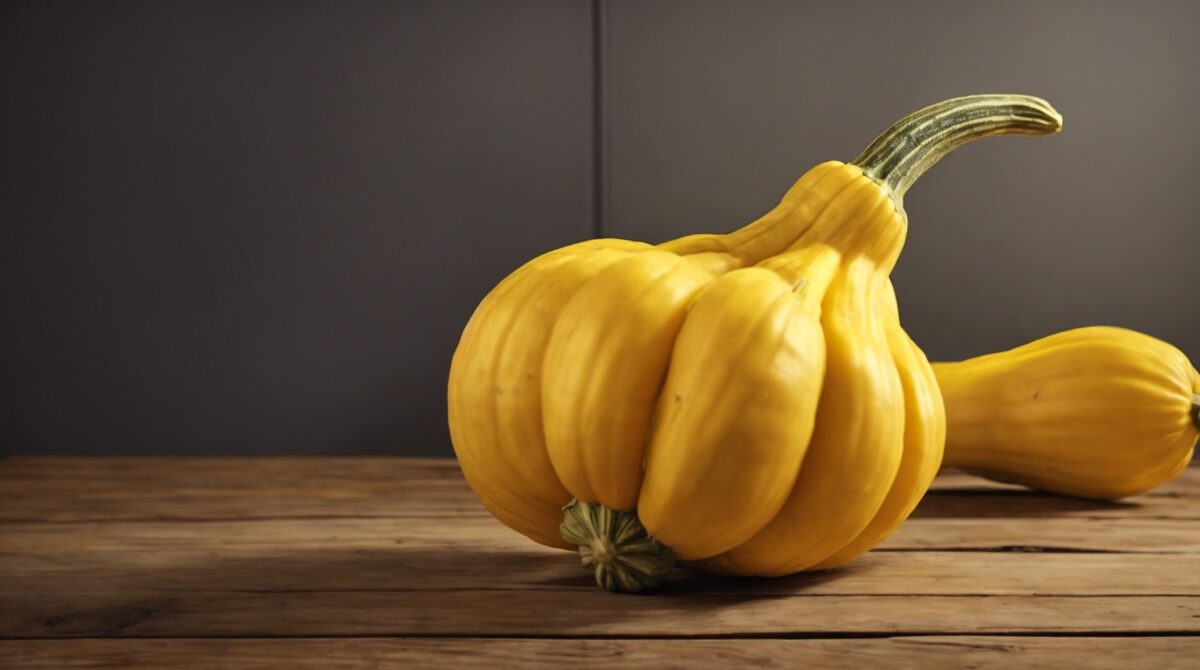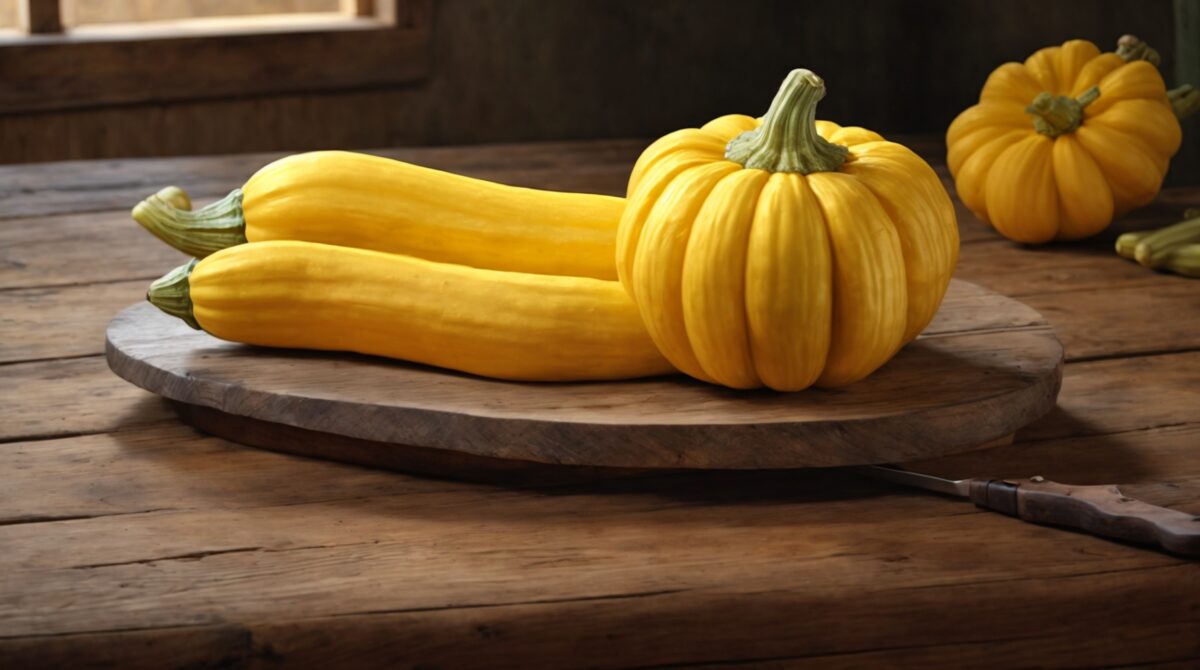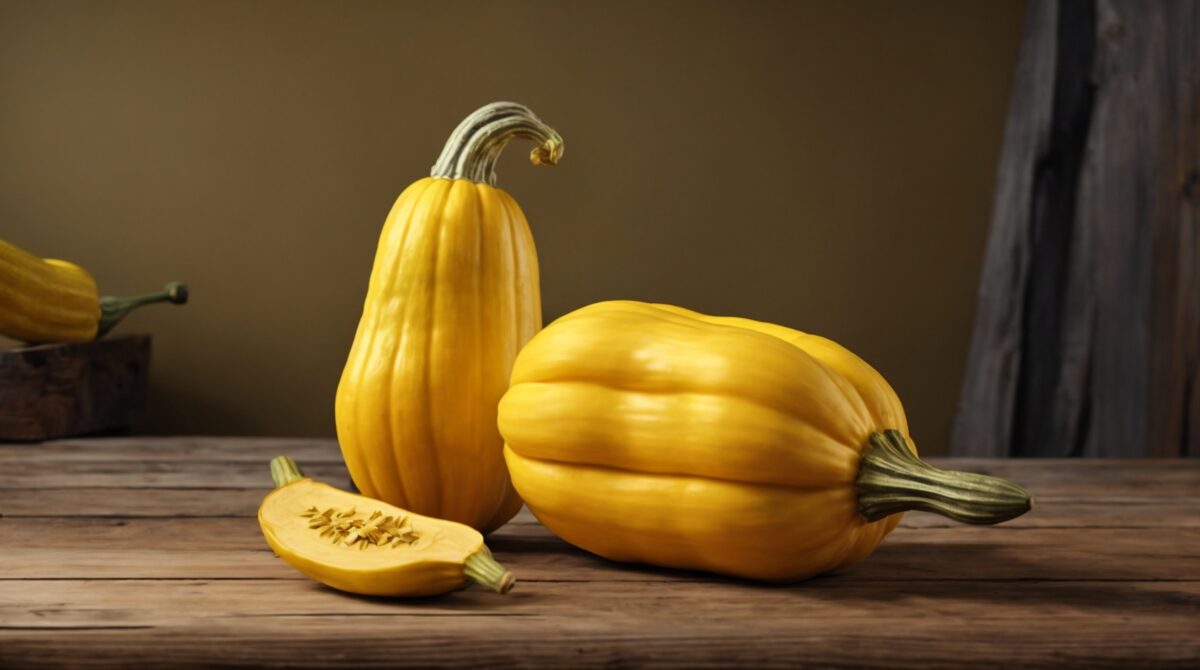Introduction to the Benefits of Squash
So, what’s so great about squash? This humble veggie is a superstar in the kitchen and a nutrient powerhouse. You might think of it as the funky-shaped thing in your grandma’s soup, but squash is truly incredible. Whether you’re talking about butternut, acorn, or zucchini, the squat, funky-shaped vegetable can add a delightful twist to meals. And the benefits of squash don’t stop at its tasty flavor.
I grew up with a garden full of squash plants. Every summer, we had an abundance of this versatile veggie. My dog even loved them! There’s something special about growing your own food and enjoying its health perks.
Types of Squash and Their Magical Benefits
Winter Squash: The Cold Weather Champion
When you think of winter squash, think of hard-skinned varieties like butternut, acorn, and spaghetti squash. These usually have a sweeter, heartier flavor, making them great for colder months.
*Butternut Squash:** Butternut squash is packed with vitamins and minerals, like vitamin A, vitamin C, potassium, and magnesium. With its natural sweetness, it often feels like you’re indulging in something much more calorie-heavy. However, it’s rather healthy and won’t mess up your diet.

*Acorn Squash:** Acorn squash has a finer texture and less sweetness than butternut. It’s a perfect addition to savory dishes. Rich in fiber and antioxidants, it promotes better digestion and fights off a bunch of nasty diseases.
*Spaghetti Squash:** Spaghetti squash is like nature’s pasta. Once cooked, it turns into stringy, pasta-like strands without the carbs. It’s a favorite for those on low-carb diets!
Summer Squash: The Warm Weather Delight
Now, let’s venture into the world of summer squash, where zucchinis and yellow squashes reign supreme. These have thinner skins and a more tender texture.
*Zucchini:** This one’s close to my heart. We had so many zucchinis growing up that we didn’t know what to do with them! They are super low in calories yet high in vital nutrients like folate, potassium, and vitamins A and C.
*Yellow Squash:** Yellow squash is a bit softer and adds a pop of color to your dishes. Filled with manganese, this variety helps with bone formation and blood sugar regulation.
Nutritional Breakdown: Squash Nutrition Facts
Let’s do a quick deep dive into the rich nutrition inside every bite of squash.

Vitamins and Nutrients
Squash is filled with a buffet of essential vitamins. Vitamin A is significant, especially in winter varieties like butternut and acorn squash. It’s great for vision, immune function, and skin. Then there’s vitamin C, which you can’t skip if you want to boost your immune system and skin health.
Fiber and Digestive Health
People often underestimate the power of fiber, but squash is here to remind us. High in dietary fiber, squash helps in maintaining healthy digestion. You’ll find it easier to, well, go. Plus, fiber is excellent for heart health.
Antioxidants
Squash contains antioxidants like beta-carotene and vitamin C, protecting your cells from damage. I remember my high school science teacher always saying, “Antioxidants are your cell’s best friends!”
Low Calorie, High Benefit

If you’re conscious of your calories but still want a full plate, squash is your go-to. Low calories but high satiety make squash a winner for weight management efforts.
Health Benefits of Squash
Boosts Immune System
The vitamin C levels in squash make it an immune-boosting superstar. Especially important during cold seasons, incorporating squash into your diet can build a stronger immune system to fend off nasty bugs.
Good for Eyesight
With high amounts of vitamin A, squash fortifies your peepers. Remember being told carrots were good for your eyes? Squash offers the same benefit, helping maintain good vision health.
Heart Health
Squash offers various benefits for heart health, from potassium to fiber content. Potassium balances out sodium levels, which can help lower blood pressure. Meanwhile, fiber helps reduce cholesterol levels.
Fights Off Inflammation
Squash’s impressive antioxidant collection can help reduce inflammation in the body. For all you folks dealing with inflammatory issues, adding squash to your meals could offer some relief.
Controls Blood Sugar
Managing diabetes or concerned about insulin levels? Squash has a low Glycemic Index (GI) and its nutrients help regulate blood sugar levels. Acorn squash, in particular, is noted for stabilizing blood sugar.
Squash Benefits for Weight Loss
Low-Calorie Option
Trying to lose some pounds but tired of eating leaves? Squash makes an excellent low-calorie alternative for various dishes. It’s filling yet won’t break the calorie bank. Think of replacing pasta with spaghetti squash; you still get to twirl your fork without the carbs.
Fiber-Rich
The high fiber content helps keep you full. Say goodbye to late-night cravings. Fiber helps in keeping your digestive system chugging along happily, easing issues like constipation and bloating.
Natural Sweetness
Squash has that touch of natural sweetness, which can help curb those relentless sugar cravings. This can be especially handy when you’re trying to cut down on candies and desserts.
Cooking Ideas Using Squash
I’ve shared my love for squash. Now let’s see how to incorporate it into everyday meals. There are endless ways to enjoy these tasty and nutritious veggies.
Roasted Butternut Squash
One of my absolute favorites! Just peel a butternut squash, cut it into cubes, and roast it with some olive oil, salt, and rosemary. It becomes incredibly tender and flavorful.
Zucchini Noodles (Zoodles)
Ever heard of zoodles? My weekend lunches often include a big bowl of zucchini noodles topped with a rich marinara sauce. All the pleasure of pasta without the guilt.
Spaghetti Squash Casserole
Swap your regular pasta with spaghetti squash. Mix the squash strands with marinara, veggies, and some cheese. Bake it just like you would with lasagna.
Acorn Squash Stuffed with Quinoa
A complete meal! Get an acorn squash, hollow it out, and stuff it with a flavorful mix of quinoa, cranberries, and walnuts.
Grilled Summer Squash
Slice up some summer squash, marinate it briefly, and grill it. Such an easy side dish, especially in the summer.
Where to Find Great Squash Recipes
Do you need a few more recipes to keep the squash train rolling? Websites like NutrNow have fantastic health-focused recipes. You can also find variations of your favorite comfort foods using squash instead of less healthy ingredients.
How to Grow Your Own Squash
Have some outdoor space? Growing squash is ridiculously rewarding. Here’s how to get started.
Planting
Spring is the best time to start. Choose a sunny spot and plant squash seeds with well-drained soil. They’re pretty straightforward to plant.
Watering and Care
Don’t drown them, but make sure they get adequate water. Fertilizing them every few weeks keeps them strong. Pests can be an issue, but organic methods like neem oil help.
Harvesting
Depending on the type, squash can be harvested late in the summer or early fall. Waiting till they’re ripe ensures you get the best flavor and nutrients.
Storing Squash: Keep Your Veggie Fresh
It’s essential to store your squash properly to enjoy them down the line.
Winter Squash
These types can be stored for months in a cool, dark place. I remember helping my grandmother arrange her winter squash in the cellar.
Summer Squash
More delicate and should be kept in the fridge. They don’t last as long as winter varieties, so it’s good to use them sooner.
Squash Benefits for Kids
Getting kids to eat veggies can be hard. Squash’s natural sweetness can help.
Hidden in Meals
Mash it up and mix into pasta sauces, meatloaf, or even muffins. The kids won’t even notice!
Fun Shapes
Using cookie cutters or spiralizers, you can make fun shapes or noodles. A touch of creativity can get children onboard the squash train.
My Personal Squash Story
I’ll never forget the time I successfully grew my first zucchini amidst a bustling vegetable garden. I was about 10 and that massive, green zucchini felt like a trophy. My mom cooked it into a fantastic stir-fry the same night. That meal still stands out as one of the freshest, tastiest things I’ve ever eaten. That experience made me a lifelong squash fan.
Squash Benefits: More Than Just Good Food
Beyond the kitchen, squash can even find use in other parts of life.
Skin and Hair
Thanks to its vitamins and moisture content, squash pulp can be used in face masks and hair treatments. The antioxidants can do wonders for skin health.
Engaging in Crafts
Don’t forget those funky shapes and colors make squash perfect for fall decorations. That’s another fond memory, making Halloween jack-o’-lanterns with friends.
Why Squash Should Be in Your Diet
To wrap it up, the benefits of squash are extensive and varied. From nutritional boosts like high fiber, vitamins, and antioxidants, to aiding weight loss, squash is a versatile addition to any diet.
If you haven’t yet embraced the squash revolution, what are you waiting for? Head to your nearest farmer’s market, stock up on various types, and start experimenting with your meals.
Remember, squash has the potential to transform your health and your kitchen in delightful, delicious ways. So go ahead, give squash a try and unlock its nutritious wonders today. Your health will thank you!
